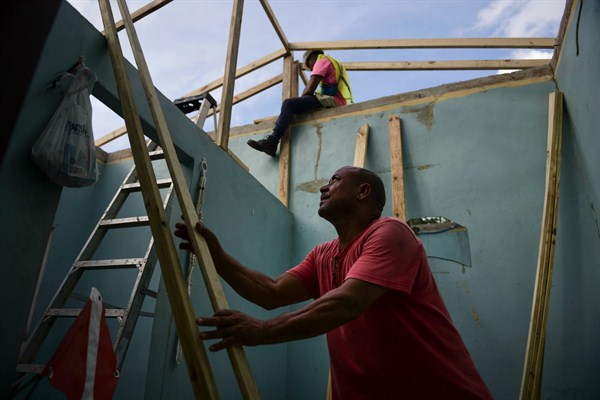As the Caribbean prepares to face another hurricane season, its islands are still confronting the toll of last year’s disasters. Hurricanes Irma and Maria, which tore through the Caribbean last September, led to many deaths, possibly up to 5,000 in Puerto Rico alone, and caused upwards of $100 billion in damage. In the typical way of natural disasters, many islands were spared, while others nearby were devastated.
Although much of the attention has focused on the plight of Puerto Rico, other severely affected islands include Anguilla, Turks and Caicos, the British Virgin Islands, the U.S. Virgin Islands, Dominica, Antigua and Barbuda, St. Martin and St. Barts. Since last September, reconstruction efforts across the Caribbean have proceeded unevenly, reflecting differences in islands’ political status and systems, as well as the amount of aid available, which is determined in part by the fact that many islands retain linkages to their colonial past.
On the positive side, these colonial-era associations come with an implicit assurance of assistance. Citizens of Guadeloupe and Saint-Martin—the French half of the island of St. Martin—retain all the rights of French citizens. Sint Maarten, the Dutch side of St. Martin, is an integral part of the Netherlands. In Puerto Rico and the U.S. Virgin Islands, residents are American citizens, while the British Virgin Islands, Anguilla and the Turks and Caicos all maintain close ties to the United Kingdom and its disaster assistance. But with the history and foreign linkages, these islands have often found that aid comes with agonizing delays and strings that may infringe on local laws and customs and hinder recoveries.

